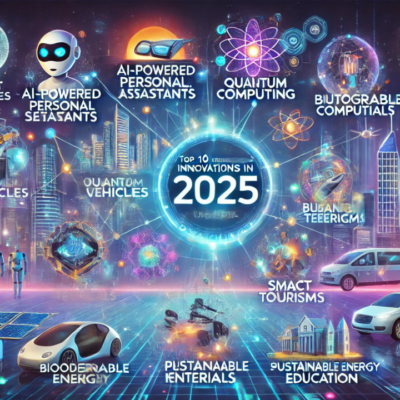Former President Donald Trump, the Republican frontrunner in the 2024 election, has confirmed that one of his first major actions—if re-elected—will be to implement a Trump hiring freeze in 2025. This move echoes his previous term when he signed a hiring freeze executive order shortly after taking office in 2017.
This time, however, Trump’s proposed freeze is more sweeping and longer-lasting. His campaign and policy advisors argue it’s aimed at “draining the swamp,” cutting government waste, and shrinking the size of federal bureaucracy. Critics warn that such a freeze could negatively affect essential services and federal job opportunities for thousands of Americans.
This article breaks down everything you need to know about the Trump hiring freeze 2025, including what it means for federal workers, government services, the U.S. economy, and the American public.
Understanding the Trump Hiring Freeze 2025

What is a federal hiring freeze?
A federal hiring freeze means that government agencies are temporarily barred from hiring new civilian employees. Some exceptions may be granted—especially in roles related to national security, public safety, and essential services—but the majority of open federal jobs would go unfilled.
What is Trump proposing?
According to policy documents released by his campaign in early 2025, Trump’s new hiring freeze would:
- Last at least one year, with possible extensions.
- Apply to all federal civilian jobs, excluding the military and select emergency roles.
- Be followed by a restructuring plan, aimed at consolidating agencies and eliminating what he calls “deep state redundancies.”
- Prioritize removal of certain federal employees seen as “ideologically hostile” to his administration’s policies.
Trump’s plan is part of a larger proposal dubbed “Agenda47,” which outlines sweeping changes to the federal government structure.
Why Is Trump Pushing for a Hiring Freeze Again?

In his speeches and interviews, Trump argues that the Trump hiring freeze 2025 is about restoring accountability, limiting government overreach, and ensuring taxpayer money is spent wisely.
Here are some of the key reasons his campaign gives:
- “Drain the Swamp”: Trump says too many unelected bureaucrats are shaping policy behind closed doors. Cutting hiring will reduce this.
- Government Downsizing: He believes a leaner government is more efficient and less expensive.
- Fight Inflation: By reducing federal spending on salaries, his team claims it will help curb inflation pressures.
- Political Purging: Critics argue that Trump may be using the freeze to root out federal employees who don’t align with his views, but supporters call it a “realignment with American values.”
Impact on Federal Workers and Job Seekers
Who will be affected?
If the hiring freeze goes into effect in 2025, the immediate impact will be felt by:
- Federal job applicants who are waiting to be hired.
- Agencies with existing staff shortages, like the IRS, Veterans Affairs, and the Social Security Administration.
- Young professionals, including recent college graduates, aiming for government careers.
Over 2.2 million civilians are employed by the federal government. While the freeze wouldn’t necessarily cut current jobs, it would prevent new hires, making it harder to replace retirees or expand services.
Will there be exceptions?
Historically, hiring freezes have allowed exceptions for critical roles. However, Trump’s plan appears more aggressive. Some insiders suggest that exceptions will be harder to obtain this time around, particularly in non-security-related departments.
What Does It Mean for Government Services?
Experts warn that the Trump hiring freeze 2025 could cause serious disruption across several government services:
Delays and Backlogs
Without new hires, existing federal workers may become overburdened. This could lead to longer wait times for:
- Tax refunds and audits (IRS)
- Veterans’ medical appointments (VA)
- Social Security benefits processing
- Passport issuance and immigration processing
Lower Morale and Productivity
Federal employee unions, such as the American Federation of Government Employees (AFGE), argue that hiring freezes increase stress on current workers. Over time, this can lead to burnout, lower job satisfaction, and reduced service quality.
National Security Concerns
Agencies like the FBI, TSA, and DHS may struggle to fill vital positions, especially in cybersecurity and counterterrorism roles. Though some roles may be exempt, the process of defining and approving exceptions may create delays in hiring even for urgent needs.
Economic Impact of the Hiring Freeze
Short-Term Budget Relief?
The Trump administration estimates the freeze could save billions in federal spending. However, critics argue that cutting hiring only postpones necessary expenditures, rather than eliminating them.
Private Sector Ripple Effects
Many companies work as federal contractors. A hiring freeze could:
- Reduce demand for contracting services
- Delay or cancel federal contracts
- Limit business growth in regions that rely on federal employment
Job Market Shifts
With fewer federal jobs available, more workers will compete in the private sector, potentially driving down wages and increasing competition for roles in tech, healthcare, and administrative services.
Criticism and Legal Challenges
The Trump hiring freeze 2025 has sparked strong reactions from lawmakers, unions, and civil rights organizations.
Legal Challenges Expected
Some legal scholars say that the freeze may face lawsuits, especially if it is used to target specific employees or departments based on political or ideological leanings. The Supreme Court may be called upon to decide the extent of presidential authority in such matters.
Opposition from Democrats and Some Republicans
Democratic leaders argue that a hiring freeze hurts ordinary Americans and undermines essential public services. Some moderate Republicans have also expressed concern that the freeze may be too broad and disrupt national operations.
Supporters Stand by the Plan
Despite the backlash, Trump supporters see the freeze as a bold step toward government reform.
- Freedom Caucus members praise it as fiscally responsible.
- Conservative think tanks say it’s needed to stop government expansion.
- Trump voters often echo the belief that the federal workforce has become too big and politically biased.
A Look Back: The 2017 Hiring Freeze
Trump’s 2017 hiring freeze lasted about three months and was eventually replaced by a plan to reduce federal workforce size through attrition. An official report found that while it saved some money, it also disrupted agencies and led to higher costs in some cases due to overtime and contracting.
The Trump hiring freeze 2025 is projected to be more far-reaching and sustained than its predecessor.
What Happens Next?
If Trump wins the presidency in November 2024 and follows through on this plan, the Trump hiring freeze 2025 could be enacted as early as January 21, 2025—his first full day in office.
Here’s what you can expect:
- Executive order within days of inauguration.
- Immediate halt to most federal hiring.
- Agency-level reviews to determine exceptions and restructuring needs.
- Court challenges and political debates throughout the first year.
How Americans Can Prepare
Whether you’re a job seeker, federal employee, or a concerned citizen, here are a few tips:
- Federal Job Seekers: Apply now. Any open positions before January 2025 may still be processed.
- Contractors: Diversify client bases and prepare for possible delays in federal contracts.
- Public Service Users: Expect possible delays in federal services and consider alternative options where possible.
Conclusion: A Bold Move or a Risky Gamble?
The Trump hiring freeze 2025 represents a bold attempt to reshape the federal government—but it’s also a high-stakes move. Supporters view it as necessary to reduce bloated bureaucracy and wasteful spending. Opponents see it as a blunt instrument that could weaken essential services, hurt workers, and even endanger public safety.
As America heads toward the 2024 election, the future of the federal workforce—and the services it provides—could depend on the outcome. The next few months will be critical in shaping whether Trump’s freeze becomes reality or remains a campaign promise.
also read – U.S. Stocks and Dollar Tumble as Investors Exit Market





